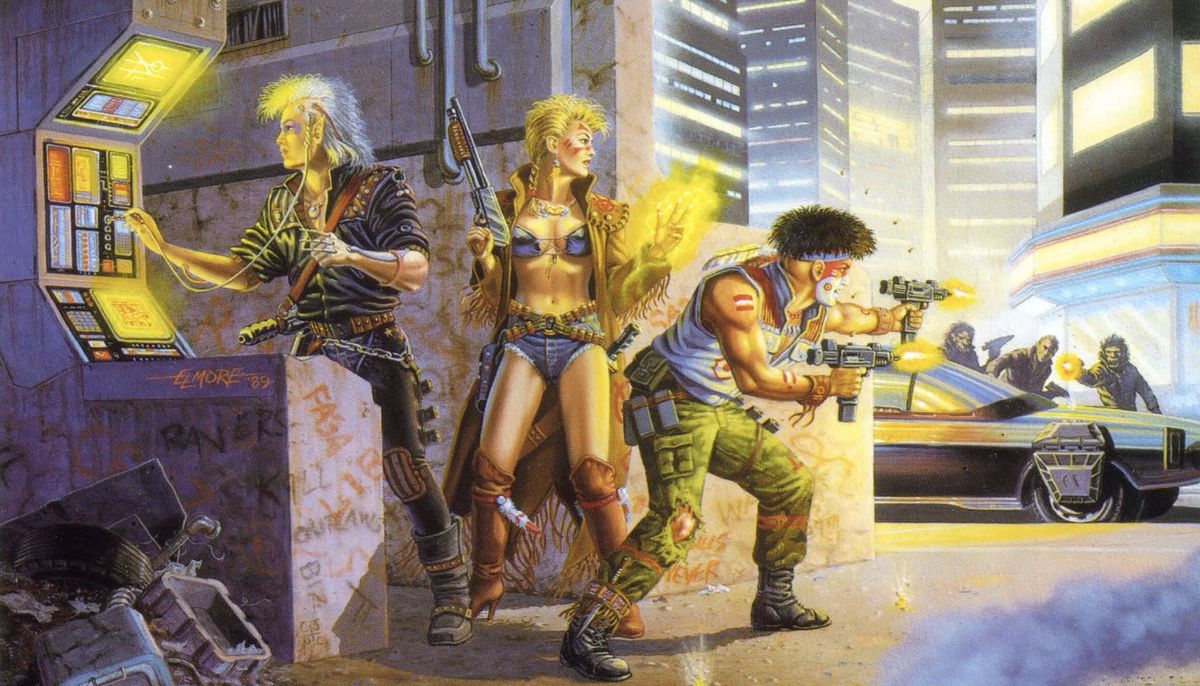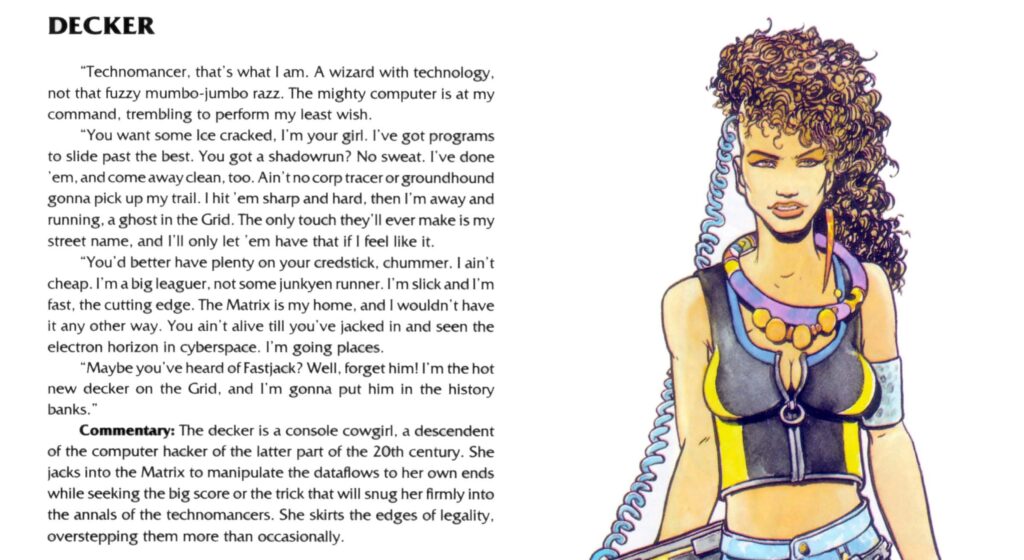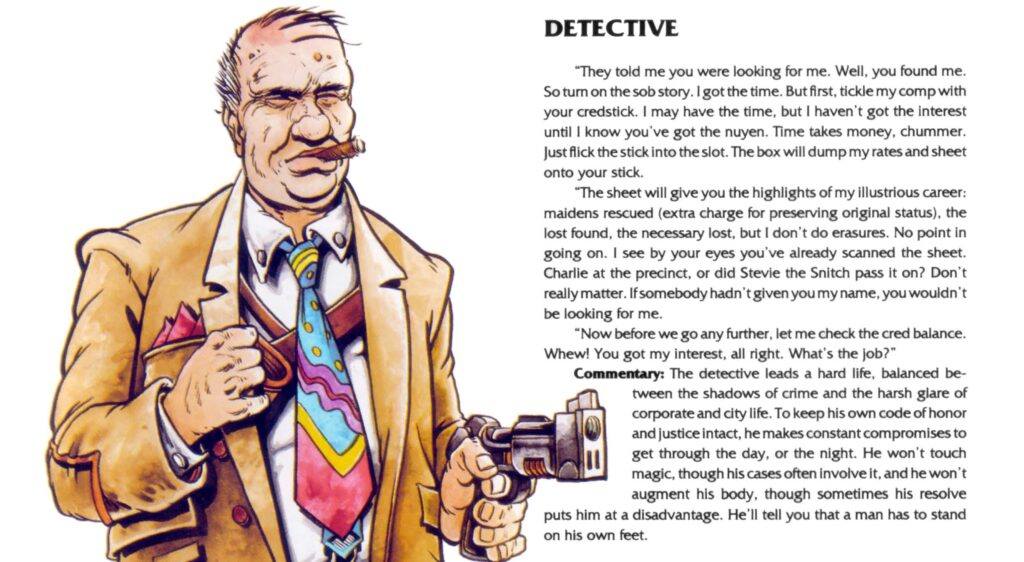Retreating From Technology

“Microblogging pills” (MBP) are short posts containing random thoughts that cross my mind. Without necessarily any context or story behind them, raw and unedited.
When I was a teenager, I was a lot into RPG games. My friends and I used to gather during the weekends in one of our houses to play for hours. Sometimes, we would sleep there and continue playing the next morning, or spend the whole night playing.
One of our favorite games was Shadowrun. The game is set in a futuristic dystopian setting called “Cyberpunk” (named after the first RPG that popularized it), a genre characterized by, as Wikipedia aptly describes it: “a combination of lowlife and high tech, featuring futuristic technological and scientific achievements, such as artificial intelligence and cybernetics, juxtaposed with societal collapse or decay”. It was heavily inspired by films such as Blade Runner and science fiction authors such as Orwell and Philip K. Dick.
The society depicted in Shadowrun was ruled by megacorporations that controlled the governments and individuals who were alienated, marginalized, and subject to digital surveillance, invasive technological modification of their bodies, and ubiquitous presence of information devices.

The Decker and the Detective
I used to be the Role Master (the person in charge of conducting the action and presenting the adventure to the characters), but when I played a character in a story, I loved being the Decker. This character was Shadowrun’s equivalent of a hacker, only heavily modified with cyber implants, expanded memory, ultra-fast calculation capabilities, and a connection jack to plug into the matrix.
Then there was the detective. He refused to step into the cyber-modifications game, and won’t augment his body through implants. He wanted to remain a “pure human” even if that put him at a disadvantage. He had a strong code of honor and a very opinionated way of conducting his life.
As someone who got his first computer at five years old, and was programming his first games (using pokes from computer magazines) at 8, I was naturally drawn to the decker. I wanted it all, all implants, all technological mods, and I would spend all my money on more memory and better gadgets in the game.
I couldn’t understand the detective at all. Why wouldn’t he want to enter this amazing virtual world and use technology to learn and remember gazillions of gigabytes of data and do things at an incredible speed?
The idea of having a jack socket attached to my head didn’t seem so bad back then, but those were different times. Social media or modern smartphones didn’t exist yet. The relationship we had with technology was mostly unidirectional. We used technology as a tool, and we always were the ones starting the interactions. Today, the relationship is quite the opposite.

Of Meta, Social Media, and Ubiquitous Connectivity
The hacker in the picture inserted the jack inside the socket whenever she wanted to connect, and was able to stay in the outside world the rest of the time. She was in control. She would go into the grid to fight those evil corporations and get outside in time to have a beer with her friends.
This power balance is broken today. These evil corporations are the ones who get to decide when we connect or use technology, not us. When we hear the sound of a notification coming up from our cellphones, it’s very probable that we are not the ones making the conscious decision of where we are going to spend our next 5, 10, or 30 minutes.
The industry is doubling down on technological ubiquity. Google’s goggles were launched in 2013 to my dismay. Watching people trapped in their 5,5” screens everywhere around me, I braced for a future where everybody will be wearing these on the street or on public transport, not knowing if this person looking at me with the goggles was recording me. Fortunately, their ugliness prevented their broad adoption by the general public.
However, the IT giants are moving in that direction. Meta is working on its multiverse and its vision involves a complete immersion of the user into this dystopian digital horizon managed by one of the biggest (and scariest) advertising corporations of our times. Devices are getting smaller and more invasive, watches, necklaces, earbuds, even rings to measure our sleep.
Retreating From Technology
Maybe I am getting old (I definitely am), but I completely understand the detective now. Whenever I am at the bus stop, at the metro, waiting in a queue, or even at the restaurant, and most people around me are staring at their phones, I get the chills.
I can’t explain why, but I just get this visceral reaction. I don’t want to be part of a future where everybody is wearing smart goggles and looking at me while their devices analyze my face looking for matches on Tinder or Grindr.
I want to be able to read for the pure joy of reading, not to reach any daily or weekly goal. I would like to hang out with my friends and engage in a conversation in which all of us “are there”, present, and actively enjoying the conversation, instead of checking our smartphones regularly.
I toyed with the idea of getting an old Nokia and getting rid of my smartphone. Even if I am not on social media, I still have notifications fighting for my attention. However, I need access to my banking apps. In a way, I still acknowledge the advantages of the digital era in things such as banking, ridesharing, and accommodation.
I need technology, and I am a geek after all (so I love technology when it is used for good), so I guess I still need to find the right balance. But as I get older, I feel the need of retreating from technology more and more, to find spaces where I can be with myself, without distractions, notifications, or the illusion of connection.




Comments ()